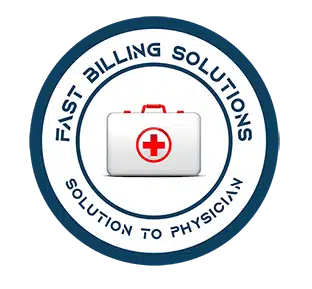The money a healthcare practitioner owes for the services they provided to patients is known as accounts receivable in the industry. This may cover costs for doctor’s appointments, procedures, lab work, and hospital stays. Co-payments, deductibles, and any outstanding debt are frequently covered in part by insurance companies and government programmes in the healthcare sector. The collection of these fees is made easier by the use of AR management services.
Health care providers may continue to serve patients with high-quality care and retain financial stability with the support of effective accounts receivable management. It’s crucial to remember that healthcare professionals are subject to rules and legislation governing patient privacy and billing procedures.
Types of Accounts Receivables in the Healthcare Industry
Outpatient services: This can include doctor’s office visits, diagnostic tests, and rehabilitation services. The patient or their insurance company is responsible for payment for these services.
Inpatient services: This can include hospital stays, surgeries, and procedures. The patient’s insurance company or government program is responsible for payment for these services.
Insurance claims: Healthcare providers must submit claims to insurance companies to reimburse services rendered. Insurance companies can either pay the full amount, a portion of the amount, or deny the claim altogether.
Patient co-payments: Patients are often responsible for a portion of the cost of healthcare services, which is typically due at the time of service. If not collected upfront, a co-payment may become an account receivable.
Deductibles: Patients may have a deductible that they must meet before their insurance coverage kicks in. This amount is also considered part of the healthcare provider’s accounts receivable.
Uninsured patients: Some patients may not have insurance coverage and are responsible for payment of the full amount of the healthcare services they receive. When patients do not pay this amount after availing the treatment, it becomes an account receivable.
Why Do Hospitals Struggle to Streamline their Accounts Receivables Management Services?
- The first reason is complex billing systems. The healthcare industry has a complex billing system, with multiple insurance providers, government programs, and patient co-payments. This can make it difficult for hospitals to track and manage accounts receivable accurately.
- The second reason is the need for more standardization among payers. Each insurance provider and government program have different reimbursement policies and procedures, which can make it difficult for hospitals to standardize their billing and collections processes.
- Improper data management is yet another reason for the struggle. Maintaining accurate patient and insurance information is critical for efficient billing and collections. However, manual data entry and limited data management systems can lead to errors and inefficiencies in the accounts receivable process.
- One more major reason is denied claims. Insurance companies can deny claims for various reasons, such as coding errors or incorrect billing information. This can lead to delays in payment and additional work for the hospital to appeal the denied claim.
- Improper patient collections are a major trigger for accounts receivable problems: Collecting payment from patients can be challenging, especially if they are uninsured or have high deductible plans. Therefore, hospitals need to have effective processes to communicate with patients and follow up on payments.
- The inability to comply with regulations is also a reason for poor AR management. For example, healthcare providers must comply with numerous laws and regulations regarding patient privacy and billing practices, which can add complexity and challenge to the accounts receivable process.
According to some estimates, as much as 40% of all medical bills result in an unpaid balance for the healthcare.
How Can Hospitals Streamline their Accounts Receivables?
Hospitals can streamline their accounts receivable process by implementing some proven strategies. Some steps that hospitals need to take are:
Implement an electronic billing and collections system: Electronic systems can automate many of the manual tasks involved in the billing and collections process, reducing errors and increasing efficiency.
Improve coding accuracy: Accurate coding is critical for efficient billing and collections. Hospitals can invest in coding training and software tools to help improve accuracy.
Monitor insurance reimbursement policies: Insurance reimbursement policies can change frequently, so hospitals need to stay updated on the policies of their insurance providers.
Communicate with patients: Hospitals can improve the collections process by communicating effectively with patients, explaining their financial responsibility, and providing clear instructions for payment.
Offer payment options: Hospitals can increase patient satisfaction and improve collections by offering flexible payment options, such as online payment portals, installment plans, and charity care programs.
Monitor and follow up on denied claims: Denied claims can significantly delay payment, so hospitals need to monitor denied claims and follow up with insurance providers to resolve any issues.
Why is Accounts Receivable Outsourcing a Preferred AR Management Strategy?
Outsourcing AR management services is a growing trend among hospitals. This is because accounts receivables bring numerous benefits to healthcare providers. Unfortunately, an onshore service provider cannot offer most of these benefits.
- outsourcing help providers save time and resources
- outsourcing can provide access to specialized skills and expertise
- outsourcing improves cash flow and reduces the risk of bad debt
- outsourcing eliminates the need to hire and train additional staff
- outsourcing reduce personnel and training costs
Fast Billing Solutions has over 10 years of experience providing AR management back-office services to US-based practices. Our services are designed to make your accounts receivable process highly effective, reduce risk, and improve cash flow. Our team of experts is trained in the latest accounts receivable management techniques and technology, providing you with specialized skills and expertise to handle complex and time-sensitive tasks efficiently and effectively.
Considering an outsourcing solution, such as Fast Billing Solutions, we will not only reduce accounts receivable and revenue loss but also leverages data and revenue cycle management trends. Contact us for more details.
You May Also Read: What is AR Management in Medical Billing? , Significance of AR Follow Up in Medical Billing , Why Choose Fast Billing Solutions for AR Analysis in Medical Billing?
